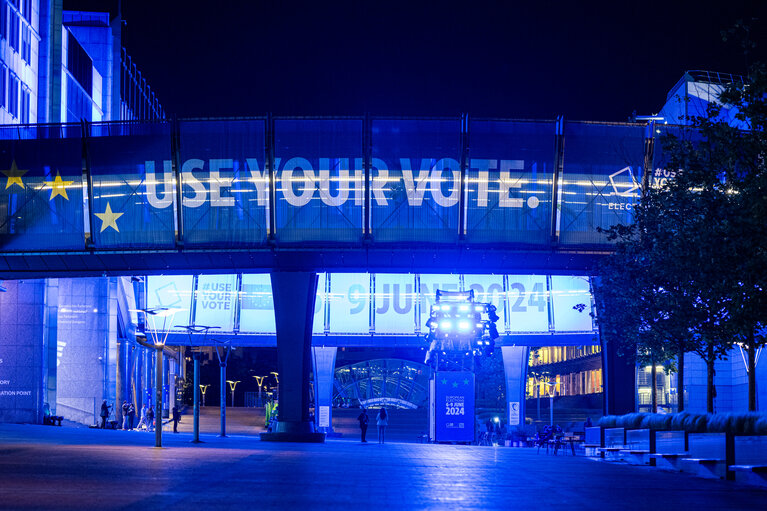Disinfo Bulletin – Issue n. 47

date: 11/06/2024
permalink: Main URL
Welcome to Disinfo Bulletin, your daily update from the EDMO network. Today's most relevant stories:
🇪🇺 EU Elections 2024: the battle against disinformation was won, but the attrition war is far from over. After the conclusion of the EU Elections 2024, a short comment by the coordinator of EDMO fact-checking activities has been published. The document reports that no significant last-minute disinformation-related incidents were detected. “Awareness around the issue of disinformation by the political and media environment, as well as by the general public – together with the readiness of institutions, platforms, fact-checkers, researchers and of everyone involved in the fight against disinformation – could have deterred malicious actors from any major attempt in the last few days and hours before the vote”, the document says.
However, the lack of last-minute major incidents is not reason enough to celebrate. Disinformation about the EU increased significantly in the months before the vote and perceptions about many issues, sensitive to public opinions, have been tainted by huge amounts of false news in recent years, when the attention about fighting disinformation was not as high as in the last few months. “It is possible to keep bad actors at bay. But it is not enough to do so only before an important election or during a severe crisis. The European information space must be kept clean and monitored all the time and there is still a lot to do to ensure one of democracy’s cornerstones, the people’s fundamental right to be correctly informed”, the document states, emphasizing the need for constant vigilance. Read more here: EU Elections 2024: the battle against disinformation was won, but the attrition war is far from over.
🗳️ Disinformation about the electoral process in the post-election period. Although widespread or noisy contestation of election results is not detected, false stories with limited impact can appear in national contexts. In Italy, for example, a post on Facebook questioned the origin of 176,000 votes for a candidate in the 2024 European elections, calling it “anomalous” that she received votes in only two constituencies. The post, written by a well-known conspiracy theorist, lacks context. The person was a candidate in the Insular and Northwestern constituencies only (Italian voters can only vote for candidates within their own constituency). Thus, the distribution of her votes is entirely consistent with the electoral rules.
📲 How did the platforms handle online disinformation during the EU elections campaign? A report published today by Maldita.es, a Spanish fact-checking organization part of the EDMO network, contains an analysis of posts and videos verified in fact-checking articles hosted in the database Elections24Check, to see if platforms had taken any action (and which) regarding them, during the four months ahead of the elections, including the Election Day. Covering a total of 1,321 posts identified in 26 European countries, it emerges that 45% of disinformation content received no visible action and that the situation is quite different from platform to platform, and from topic to topic. For the detailed analysis, read the full report: Platform Response to Disinformation during the EU Election 2024.
♀️ Gendered disinformation during the EU elections campaigns. Female politicians face heightened risks of harassment and disinformation, with attacks often more vicious than those targeting their male counterparts. This environment can force women out of politics, undermining democracy and female participation. According to an article on The Global Disinformation Index’s website, an organization aimed at countering online disinformation, during the 2024 EU elections, online gendered abuse surged, targeting EU leaders and candidates with misogynistic narratives. Notably, Ursula von der Leyen faced severe attacks questioning her competence and integrity, while black female politicians experienced even harsher abuse. Read the full text here: Gendered Disinformation in the European Parliamentary Elections.
👋 Goodbye and thank you for following the Disinfo Bulletin! As the 2024 European elections have concluded, the Disinfo Bulletin is taking a break. Your engagement and support have been fundamental and deeply appreciated. Stay tuned, as you might hear from us again in the future. In the meantime, thanks to the whole EDMO community and the European fact-checking community at large for the great work!
Goodbye from the EDMO Task Force on EU elections and Enzo Panizio, Pagella Politica / Facta.news!
If you have suggestions, comments or requests about this newsletter, you can write to edmo.tfeu2024@eui.eu
What is a “disinformation narrative”? Please find here a short methodological note about the definition used by the EDMO fact-checking network.
The Disinfo Bulletin gathers material from the inputs of the EDMO fact-checking network, as well as a recently launched public database from the EFCSN network (Elections 24 Check), and the various national EDMO hubs, including community initiatives and insights from individual fact-checking organizations.
Photo source: European Parliament, Denis LOMME
